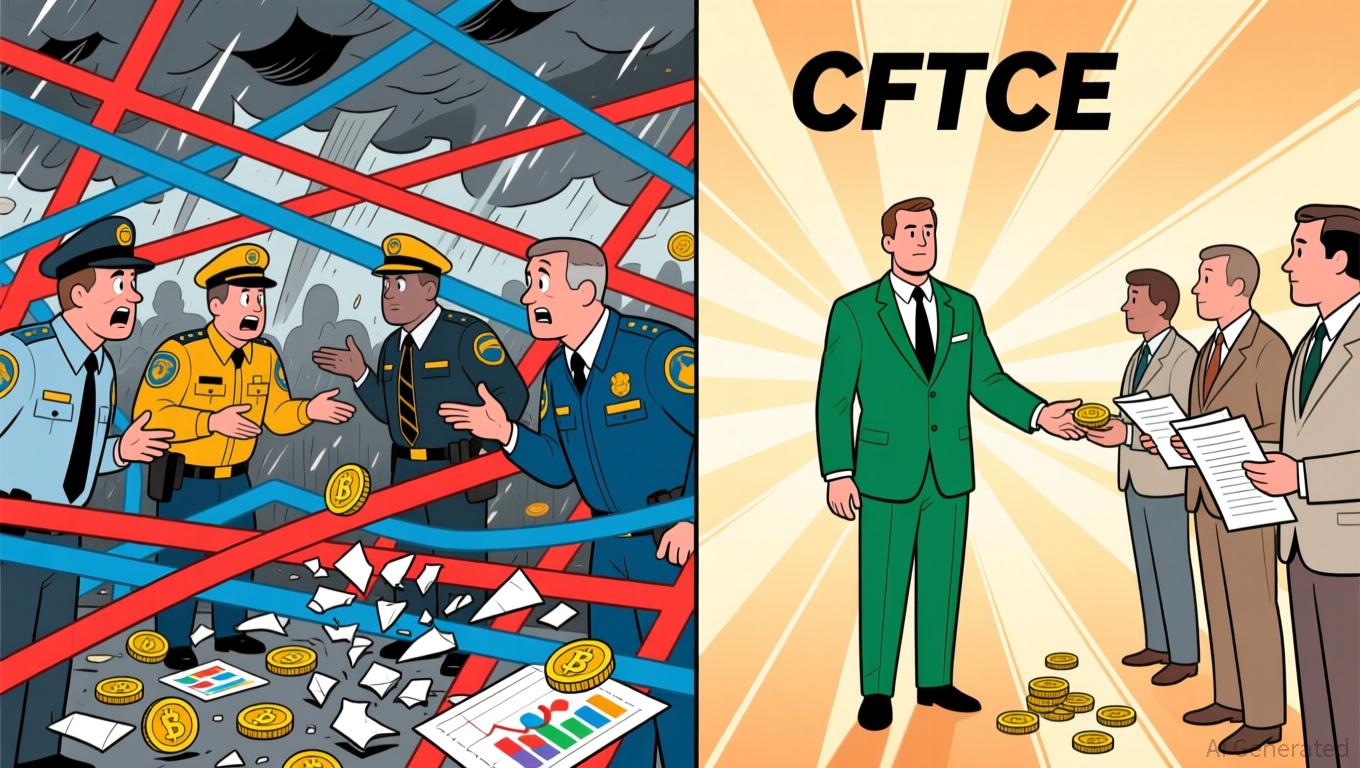Regulation and Innovation: Brazil's Stablecoin Reform Ignites Discussion
- Brazil's central bank classifies stablecoins as forex operations under 2026 rules requiring AML/CTF compliance and capital reserves. - Privacy advocates criticize the framework for enabling "total surveillance" through centralized user data tracking and increased cyber risks. - Regulators defend the measures as essential to combat money laundering in Brazil's $1.7 trillion crypto market while advancing its CBDC project Drex. - Global parallels emerge with UK's £20,000 stablecoin cap, highlighting growing
Brazilian Central Bank Recognizes Stablecoins as Foreign Currency Transactions
The Central Bank of Brazil has officially designated stablecoin activities as foreign currency transactions, implementing a comprehensive set of regulations that will be enforced starting February 2026. Announced through Resolutions 519, 520, and 521, this initiative seeks to subject stablecoins to the same anti-money laundering (AML) and counter-terrorism financing (CTF) standards as conventional banks, making Brazil one of the first major economies to regulate digital assets as foreign exchange instruments.
According to the new framework, all stablecoin transactions linked to fiat currencies—including overseas payments, card purchases, and international transfers—must now adhere to Brazil’s established foreign exchange laws.

The new rules have sparked immediate backlash from privacy supporters, who claim the regulations amount to “complete surveillance” of crypto participants. Analyst Felipe Demartini pointed out that exchanges will need to keep a centralized record of user identities, transaction logs, and wallet information, potentially exposing users to cyber threats and political exploitation
The central bank has justified its stance as essential for aligning the crypto market with broader financial stability objectives. Gilneu Vivan, Director of Regulation, stated that the new policies will “limit opportunities for scams, fraud, and the misuse of virtual asset platforms for money laundering,” referencing the R$1.7 trillion in crypto transactions processed in Brazil in 2024
On the global stage, Brazil’s regulatory approach mirrors a broader movement toward harmonized oversight. Comparable policies are being rolled out in the U.S. and U.K., where stablecoin regulations are designed to balance technological progress with consumer safety. For example, the Bank of England has introduced a £20,000 cap on individual stablecoin holdings, citing concerns over financial stability
With the February 2026 deadline drawing near, Brazilian crypto companies are entering a crucial phase of regulatory adjustment. While the new rules provide much-needed clarity for a rapidly expanding sector, they also highlight the ongoing tension between regulatory oversight and the decentralized nature of blockchain. For now, Brazil’s central bank remains committed to its dual objectives: promoting innovation while protecting the stability of the national financial system
Disclaimer: The content of this article solely reflects the author's opinion and does not represent the platform in any capacity. This article is not intended to serve as a reference for making investment decisions.
You may also like
Bipartisan Legislation Assigns Crypto Regulation to CFTC to Clarify Oversight Uncertainty
- U.S. lawmakers propose shifting crypto regulation from SEC to CFTC via a bipartisan bill, reclassifying most digital assets as commodities. - The draft aims to resolve regulatory ambiguity stifling innovation, building on stalled House CLARITY Act efforts during the 38-day government shutdown. - Market optimism surged as shutdown relief pushed Bitcoin above $105k, with ETF outflows persisting amid anticipation of clearer CFTC-led oversight. - Critics warn of CFTC resource constraints, while proponents hi

Solana News Update: DevvStream Invests in SOL Despite $11.8M Deficit, Shows Strong Confidence in Sustainable Blockchain Prospects
- DevvStream Corp. (DEVS) disclosed holding 12,185 SOL and 22.229 BTC, staking SOL for 6.29% annualized yield amid a $11.8M fiscal 2025 loss. - The company launched a digital asset treasury via BitGo/FRNT Financial, securing $10M liquidity from a $300M convertible note facility. - Plans include a 2026 tokenization platform for carbon credits and Solana staking, aligning with its de-SPAC/Nasdaq listing strategy. - Despite crypto market outflows, DevvStream's staked SOL attracted inflows, contrasting broader
ALGO Falls by 2.28% Over 24 Hours as Short- and Long-Term Performance Shows Mixed Results
- ALGO dropped 2.28% in 24 hours to $0.1844, contrasting with 17.29% weekly and 4% monthly gains but a 44.84% annual decline. - Traders monitor ALGO's resilience amid macroeconomic shifts, though long-term bearish trends highlight structural challenges. - Key support at $0.18 could trigger bullish momentum if held, while breakdown risks further declines toward $0.15. - A backtest analyzing 15% single-day spikes aims to assess ALGO's potential for sustained gains or pullbacks post-rallies.
BCH Gains 1.24% Following Banco de Chile’s Announcement of Bylaw Changes
- Banco de Chile (BCH) announced bylaw amendments on Nov 10, 2025, to strengthen corporate governance and align with regulatory standards. - The announcement coincided with a 10.81% 7-day stock surge, contrasting with a 2.07% monthly decline but supporting a 20.6% annual gain. - Investors viewed governance reforms positively, as such changes often signal improved transparency and accountability in regulated markets.